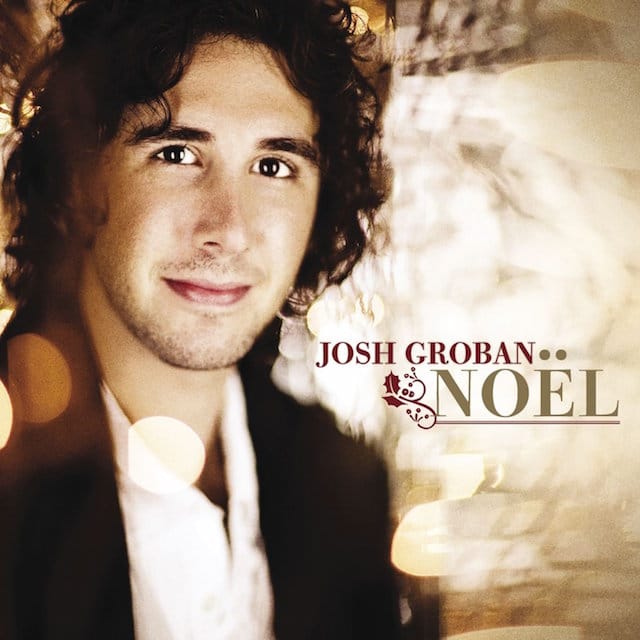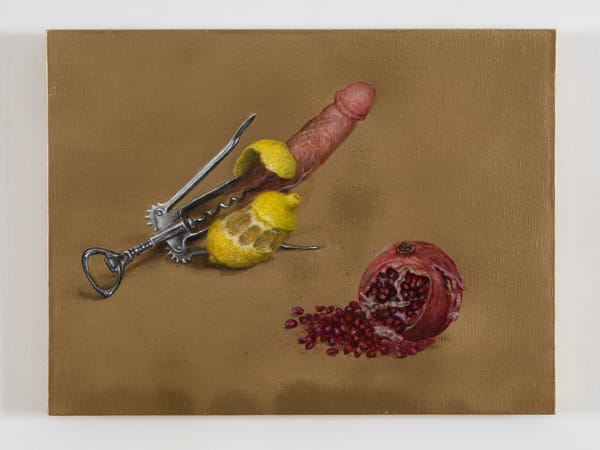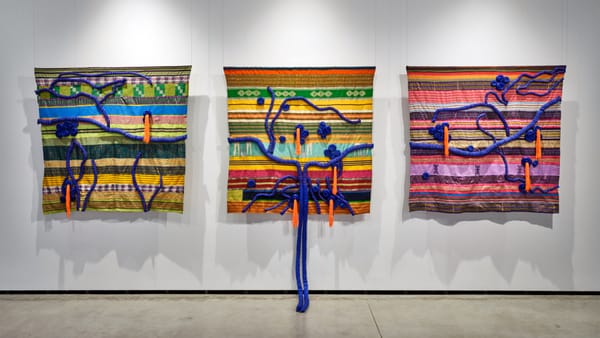Josh Groban, Canary
Let’s take a moment to examine Josh Groban’s voice, shall we?

Let’s take a moment to examine Josh Groban’s voice, shall we? Put on the classical-pop dork/dreamboat’s new theater-themed album, cleverly entitled Stages (signifying not just the Broadway stage but various stages in his life or some such platitude), and keep your ears peeled past that cheesy swelling of strings, that painstakingly deliberate orchestral intro — there it is! Darting through the music like a doe through the woods! Be very quiet, it might get scared. It starts soft and tender, then it gradually gains power and speed, ahhhh, now it’s in full-on opera mode. No mere Broadway singer could replicate that silver-plated glide, that glistening vibrato. The song is “Pure Imagination,” from Willy Wonka & the Chocolate Factory. Compare Gene Wilder’s original, much more straightforwardly and modestly sung. Groban sure knows how to flex those pipes of his.
That voice is the reason he’s selling millions of records. Precariously teetering on the line between baritone and tenor, it trembles with the easy, natural eroticism of a hotshot heartthrob coupled with the clean-cut sincerity of a boy you’d take home to mother, and let us not forget the fawning respect for his elders conveyed by his immaculate vocal training. Like Andrea Bocelli or Céline Dion or, periodically, Bryn Terfel, Groban sings four-minute melodic-anthemic songs, usually with English lyrics, in a “classical” singing style; he’s the crown prince of popera not because of academic vocal quality but because he somehow manages, within the formal constraints of this singing style, to sound sexy. While every so often he has a hand in writing his own material, like many musicians who specialize in so-called interpretation, he’s less singer-as-auteur and more singer-as-sacred-vessel: the mere container for a heavenly voice, a living entity that can be physically damaged, a sunbeam that suffuses every room and lights up your heart when he opens his mouth. Just how he measures up on a technical level I have no idea, though I suspect an opera critic could tear him to shreds. But as pop voices go, he has enormous range, and unlike most operatic voices, whose fetishistic standards of tonal purity sound mannered to my ears when applied to human singing, he rolls his way through all sorts of meaty textures and dreamy shades of intonation. He whispers and the family circle swoons; he slips into melisma and the balcony sighs; he reaches for a high note and the grand tier faints. That is, he’s altogether oilier and more ambitious than the vast majority of opera singers playing to their ever-shrinking market share. Whether packing 2007’s Noël with old chestnuts or selecting the catchiest and most famous Broadway tunes for Stages, he always goes for maximum recognition and accessibility. He wants the classical audience and the pop audience alike, and maybe some awards too. Would Jonas Kaufmann ever perform at the Grammys, I ask you?
Stages isn’t quite your average collection of theater standards, not with songs in French and the aforementioned “Pure Imagination.” But it comes close enough (lotsa Sondheim, a selection from Les Misérables needless to say, and of course he has to cover “Over the Rainbow” as well) that the genre exercise demands changes in Groban’s vocal technique. No matter that many of these ditties make little sense for those unfamiliar with the particular musicals, this is about voice, about the magnificent display of his instrument, and he takes the opportunity to show off some chops. Swoops, octave jumps, and open fifth notes abound, as do rather self-congratulatory flutters of violin. Yet because most of the songs were written with a totally different vocal style in mind, namely the more colloquial patterns of Broadway dukes and divas, he forces himself to adapt halfway. Overprojecting per habit, he also overenunciates. With no syllable left underarticulated, no consonant left unembellished by a pedantic flick of the tongue, this has the effect of squeezing his voice more narrowly than he’s accustomed to, and the strain is palpable. Consequently Groban, heroic as always, attempts to sing past the limitations he himself imposed; puffing up his chest, he gears up to belt out his melodies — only that the pinched tension in his lips, so useful when trying to properly pronounce words, tends to clamp down on the notes. The accompaniment, florid and artificial with intricately counterpointed strings, burbling flutes, and mechanical piano progressions, patters along skillfully in the background while keeping the focus on the vocal performance and/or struggle. One must wonder what he looks like while singing these songs. A little pained, I imagine.

Stages will likely sell a million copies despite all this; Groban’s histrionics just have a way of sweeping people away like the summer breeze. Sometimes I even find myself absentmindedly humming one of these glossy showtunes — Sondheim’s “Finishing the Hat,” say, from Sunday in the Park with George. One of the few songs ever to make one empathize with an egomaniacal artist, the tune churns round and round over a beguiling piano cycle as Groban, playing Seurat, neurotically obsesses over his commitment to painting. He repeats variations on the same evasive melody, drawing you in, before unexpectedly surging into a grand climax as his hammy operatic thunder takes over. Then all of a sudden he quiets down and now he’s pacing back and forth again, instinctively altering the timbre of his voice depending on where he is in the song. For texture and physical resonance, Groban’s singing really does vibrate and purr, and as with many male singers who play up their hunk appeal, it can be amusing or even heartwarming to hear him muscle through his own clichés, to simply enjoy the inherent grace and sexuality in his vocal sound. Give him the chance and he’ll lift you up, and before you know it you’ll be soaring through the sky, basking in sensuous melodrama, murmuring reassuring inanities about how it’s all just entertainment, it’s all just a good show, and isn’t that what Groban is providing? Trying to keep an open mind, I began warming to the album on my second or third play. Then I gagged. However sturdy his baritenor, however endearingly he fluctuates between Met and Broadway modes, whatever perverse thrill there may be in relishing his extravagant technique, this man is a horrifying singer, a case study in the inadequacy of kitsch. It is precisely the virtuosity and expertise of his singing that make it so smarmy and empty. The only content to his art is the cozy feeling of security that swathes music this received and this civilized like a blanket.
That doesn’t mean the album is totally pleasureless, however. Listen past the mannerism and there really is something special about Groban’s voice, an evident physical gift. In his case, canary-fancier rhetoric applies; rather than an artist, think of him as the means for housing something celestial. That voice has a spirit of its own. It demands to be taken care of, fed, petted, loved. Deployed within such a restricted context, you can hear it kicking back, writhing in his grasp, yearning to be free.
Stages and Noël are available from Amazon and other online retailers.





